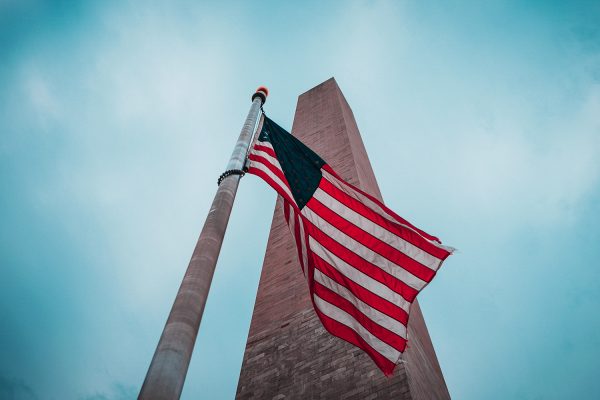
Pascal-Emmanuel Gobry argues at The Week that one of the things conservatives must do in response to Donald Trump’s presidential candidacy is develop a new American nationalism that can appeal to his supporters.
“Trump has made it impossible to continue to ignore the power of racism on the right, but we also shouldn’t overstate its influence,” Gobry argues.
The New Yorker decisively won the Republican Party’s presidential primary in South Carolina, for example — the same state where a Republican governor of Indian descent removed the Confederate flag from government grounds and enjoys stellar approval ratings.
“End of white America”
The sort of race anxiety Trump taps into reflects a general loss of status. Being at least a member of America’s dominant white tribe may have given his supporters a sense of dignity in the past they could not derive from their cultural or economic status, which is after all low.
As this website has argued, the sort of Americans who like Trump have been on the losing side of every major argument in the last twenty years, from the culture wars about feminism and gay rights to free trade and globalization.
Barack Obama’s election in 2008 encapsulated the demise of the country they knew: a black president elected to end a war and provide universal health insurance would have been unthinkable a generation ago.
Patrick Buchanan, a nativist whose hopeless presidential bids in the 1990s presaged Trump’s, postulated the “end of white America” in 2011. “Mexico,” he warned in a book, Suicide of a Superpower, “is moving north.”
Enter Trump who kicked off his presidential campaign by accusing Mexico of deliberately sending its drug dealers and rapists across the border and promising to build a wall.
Buchanan overstated his case. Hispanics, the fastest growing demographic, are a fluid category. Marriages and births of mixed color and ethnicity are rising. But it’s true that Americans of Northern European stock are due to become a minority. Projections are that by the middle of the century they will comprise less than half the population.
Cultural conservatives like Buchanan worry that such a demographic shift will have political and social implications. And it might.
Nationalisms at odds
Contrary to mythology, America wasn’t really a melting pot for most of its history. It was rather a New Europe. Specifically, a recreation of largely Northwestern Europe. One in five Americans still claims British or Irish ancestry; 15 percent report German heritage. 75 percent identify as Christian. It were mainly white Protestants who shaped America’s political culture and social norms.
Gobry hopes that a new nationalism could appeal to the feeling of loss of status by downwardly mobile Americans of every color and creed. But such a nationalism would be too broad to satisfy Trump’s voters.
How do we know? Because that’s the nationalism America has.
The idea of the nation of immigrants, the reverence for the Constitution and self-government, the Frontier mentality, egalitarianism, the American Dream — that’s the liberal, civic nationalism that has held the country together for the last century. It is this nationalism that is rejected by the likes of Buchanan and Trump as politically correct and weak.
Emphasizing instead America’s Christian, white heritage would risk turning its nationalism into a darker, ethnic kind and invariably clash with another imperative Gobry rightly sees for the conservative movement in the United States: to be more inclusive.
